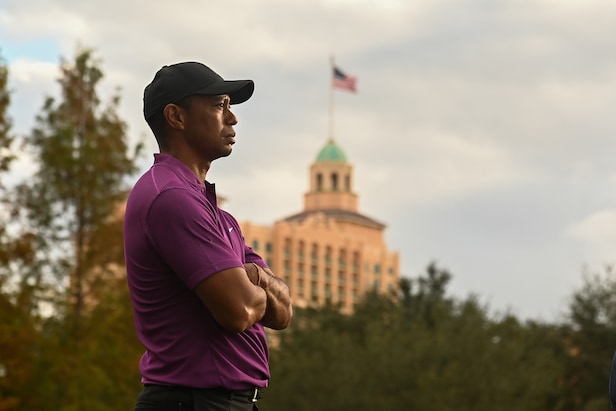
Audience
- Sentiment: empathetic
- Political Group: neutral
- Age Group: all age groups
- Gender: all genders
Overview
- Tiger Woods withdraws from the Genesis Invitational due to emotional strain from his mother’s recent passing.
- Woods emphasizes the importance of healing, both physically and emotionally, after significant losses.
- His love for golf remains strong despite setbacks, inspiring fans and young golfers alike.
Tiger Woods: A Journey Through Loss, Healing, and the Love of Golf
Tiger Woods is a name that echoes through the world of sports. He’s not just a golfer; he’s a legend, a symbol of resilience, and an inspiration to many. His journey has been filled with incredible highs and devastating lows. Recently, Woods made headlines again with the announcement that he would not be competing in the upcoming Genesis Invitational at Torrey Pines. This was supposed to be a significant event as it marked his long-awaited return to the PGA Tour following a tough recovery from back surgery. But as fate would have it, Woods revealed that he is “just not ready” to play yet, mainly because of the emotional weight that comes from the recent loss of his mother, Kultida.
Woods’ decision has left fans feeling a mix of disappointment and understanding. After all, every sports fan knows that the journey of an athlete is often more complicated than what happens on the field or court. Let me take you deeper into this story, exploring not only Woods’ career but also how personal struggles can impact our passion for the things we love.
The Road to Recovery
First, let’s talk about the journey Woods has been on physically. For those who might not know, he has faced a series of injuries over the years, especially related to his back. Golf requires a lot from the body—balance, flexibility, and strength. Imagine having to swing a club while dealing with back pain! Many athletes might push through the pain, but for Woods, it was clear that he needed surgery to heal properly and get back to his best form.
The surgery he underwent was no walk in the park; it takes time to recover from such an operation. Woods had to spend months working on his rehabilitation, focusing on exercises that would help strengthen his body again. Through all of this, many fans hoped for his swift comeback to the professional circuit. The Genesis Invitational would have been a fantastic stage for him to showcase his hard work and determination. However, the emotional battle he was fighting inside was even more daunting than any physical challenge on the golf course.
The Impact of Loss
Now, let’s talk about the emotional side of Woods’ decision to withdraw from the Genesis Invitational. The recent passing of his mother, Kultida, deeply affected him. For a lot of us, our mothers are more than just family; they’re our support system, our cheerleaders, and often our best friends. Losing a parent can take an enormous toll on anyone, not just mentally but emotionally and physically too.
Kultida was always a crucial part of Woods’ life. She was there from the very beginning—taking him to golf courses when he was just a little boy, nurturing his talent, and encouraging him through the ups and downs of his career. Woods has often credited her for helping shape him into the player he is today. The bond they shared is something special, molded by love, sacrifices, and unforgettable memories. So, when she passed away at the age of 80, it was not just a personal loss but a loss of an integral part of his identity as a person and as a player.
Imagine being Woods right now. After going through a painful recovery process and looking forward to finally stepping back onto the field, he faces the loss of his mother. Suddenly, the golf course doesn’t feel like a place of excitement and joy—it transforms into a reminder of his pain. We can all relate to the feeling of not being “ready” when faced with such an emotional situation. Emotions can creep in unnoticed and weigh down even the most determined of athletes.
Navigating Grief and Healing
Grief is a journey that everyone experiences differently. For Woods, he is using this time not just to heal physically, but also to reconnect with his feelings, his family, and to honor his mother’s legacy. It’s essential to understand that taking a step back and allowing oneself to feel is a vital part of healing.
In his statement, Woods mentioned that he hopes to attend the Genesis Invitational later in the week, showing that while he is going through a tough time, he also wants to be there for his fans and the sport he loves so much. This is a special acknowledgment of the connection between a player and their supporters—an understanding that transcends the game itself. Golf is not just about competing; it embodies camaraderie, community, and a shared love for the game.
For many, Woods symbolizes determination and grit. His ability to overcome obstacles, from devastating injuries to personal losses, reminds us that being human means experiencing both joy and sadness. After all, life is a game where everyone has to face both wins and losses.
The Love for Golf
Despite his absence from the upcoming tournament, Woods’ love for golf remains steadfast. Whether competing in front of thousands or practicing alone on a driving range, golf has always been a significant part of his life. It’s an escape, a thrill, and an opportunity for self-expression.
Woods has inspired countless young golfers to pick up a club and pursue their dreams. Growing up, many a young athlete looked up to him not just because of his tremendous skills but because of his sheer tenacity and dedication. It’s essential to recognize that the love for a sport can be a source of motivation even during challenging times. Perhaps Woods will use this time to reflect on the joys of the game and think about what it means to him outside of competition.
Reflections and Looking Ahead
As we move forward, we can only speculate about Woods’ future in golf. Will he return to the championship stage? Will he once again dazzle audiences with his remarkable talent? The answers are uncertain, but what is clear is that he’ll take the time he needs—both to heal and to honor his mother’s memory.
As fans, we should support him during this time. It’s important to remember that everyone faces challenges, whether they’re athletes or not. While we eagerly await his eventual return to the sport, we can also reflect on how grief manifests in our own lives and the importance of taking the time to heal.
Tiger Woods’ announcement is a reminder that life can throw unexpected curveballs, but it’s how we navigate those challenges that truly defines us. As we wait for his return, let’s keep our support and encouragement for him strong.
What do you think about Woods’ decision to take time off for himself and his family? How do you think athletes handle personal challenges while being in the spotlight? Feel free to share your thoughts and comments below!




